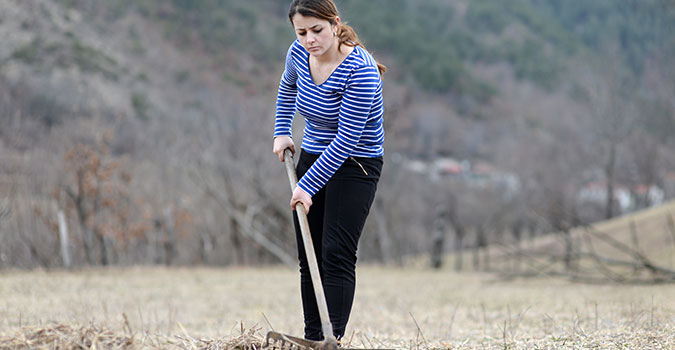Women’s Economic Empowerment and Resilience

Providing access to employment and better income opportunities are among the most effective ways to empower women. Yet, the main challenges for women in Albania remain the high levels of informality, few opportunities in the labor market, lack of skilled entrepreneurs and their access to services and credit.
Women’s average salary is almost 17 per cent lower than men’s in urban areas and twofold lower in rural areas. Women tend to work in lower-skilled, “traditionally female” jobs in Albania. Female unemployment rates are higher, and they earn less than men. They are over-represented in the country’s informal economy and as unpaid family workers in businesses and on farms.
More than half of employed women in Albania work in agriculture, however, their contribution in many cases remains invisible because of their high levels of informality. 87 per cent of them are unpaid family workers. Rural women have limited access to agricultural inputs and opportunities compared to men such as land, property, productive assets, remittances, technology and finance.
The country also faced the impact of the 2019 earthquake and COVID-19 pandemic, with the economic and social fallout affecting women more than men.
Our solutions
UN Women has a long history in supporting Albanian Government to meet many international commitments that support women’s economic empowerment, including the Beijing Platform for Action, The Convention on the Elimination of All Forms of Discrimination against Women, the Sustainable Development Goals and the EU legislation on gender equality.
In close cooperation with the Government, private sector and civil society our interventions focus on providing access to employment and better income opportunities, which are among the most effective ways to empower women. UN Women has boosted the capacities of public institutions on designing and implementing policies and strategies for rural women’s economic empowerment. We have also supported women’s entrepreneurial capacities, including through value chains in rural areas as a key tool to advance women economic empowerment.
Our solutions include strengthening women’s access to productive and financial resources, knowledge and information and skills development opportunities, especially in the agriculture sector.
One critical area of support is also increasing the capacities of institutions in implementing existing legislation on women’s economic and property rights. In the meantime, we have provided them access to nationally generated and disaggregated data and statistics on women’s economic opportunities and constraints.
UN Women also works with the private sector to increase women’s participation in the workforce corporate leadership and distribution networks through the Women's Empowerment Principles of UN Global Compact. In Albania, over 20 companies have committed to foster business practices that empower women. These include equal pay for work of equal value, gender-responsive supply chain practices and zero tolerance against sexual harassment in the workplace.